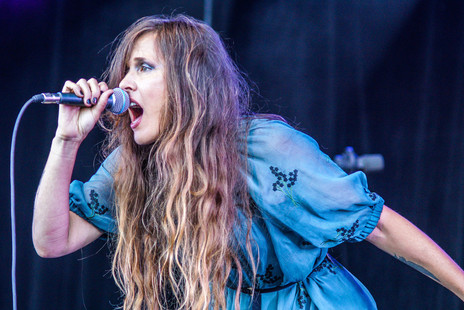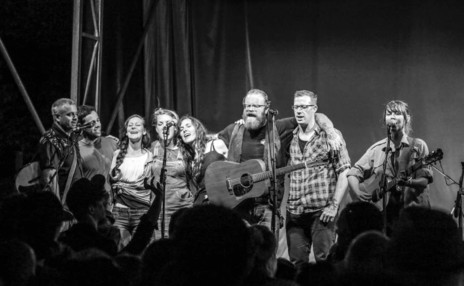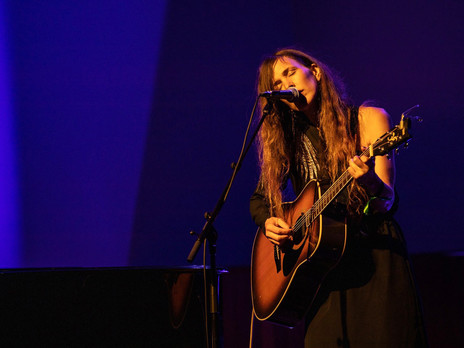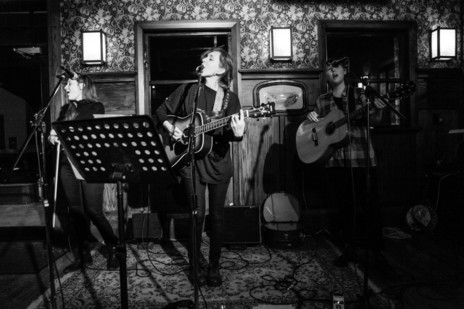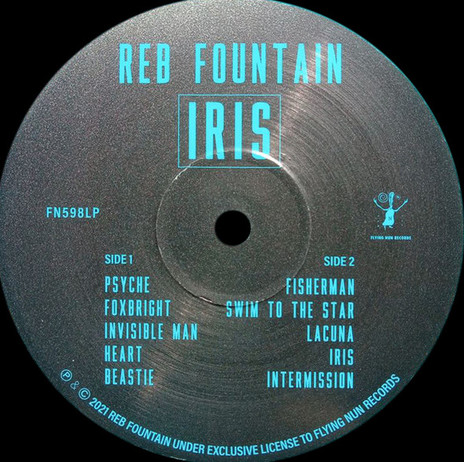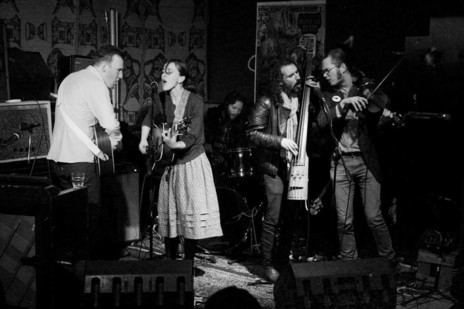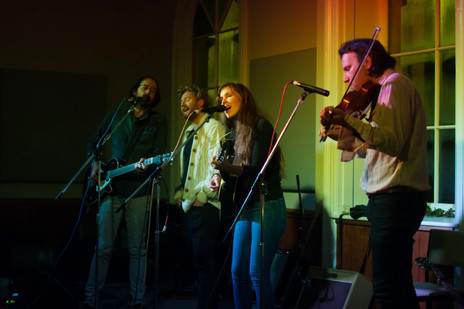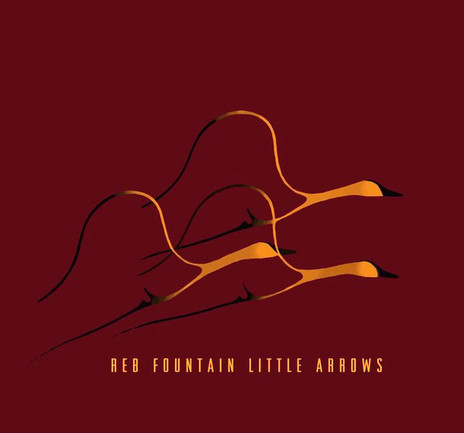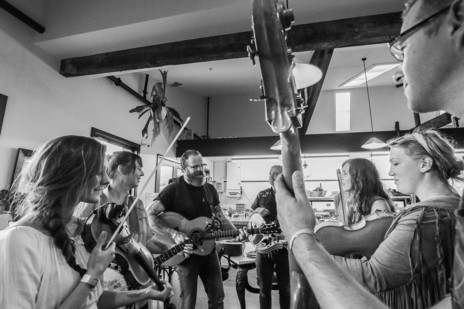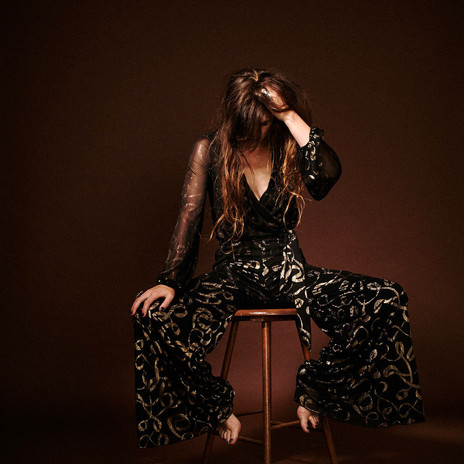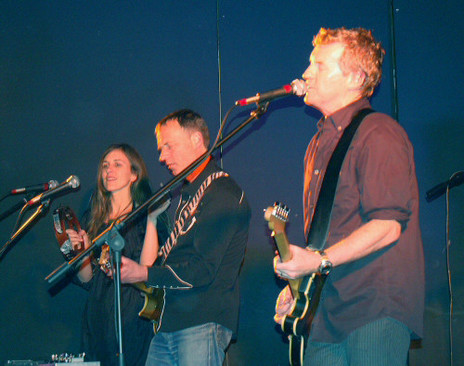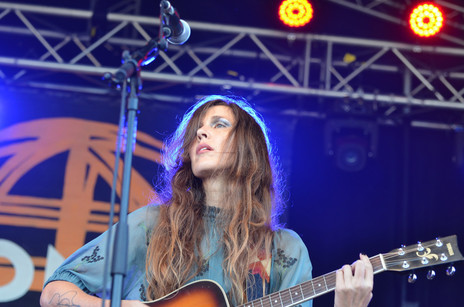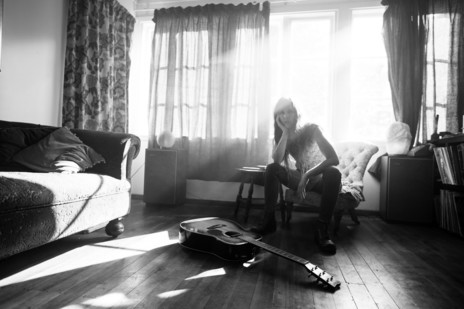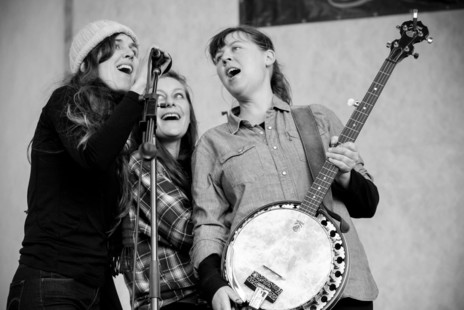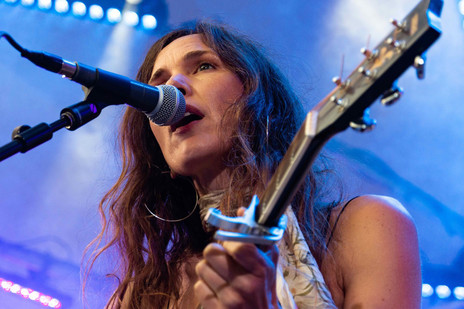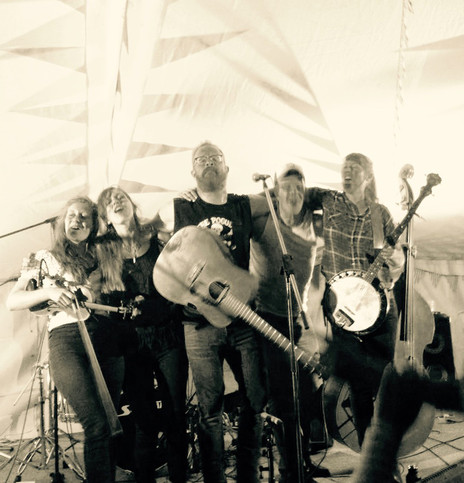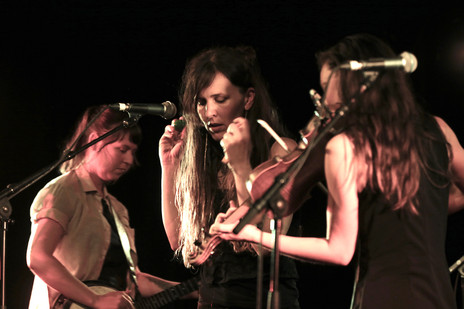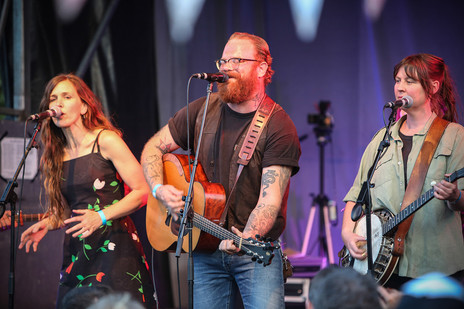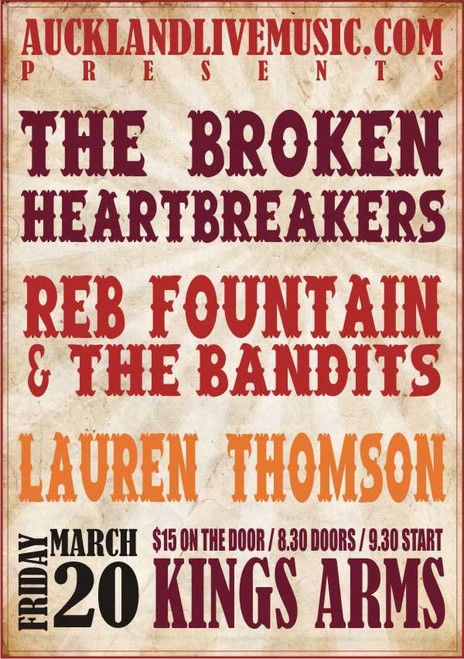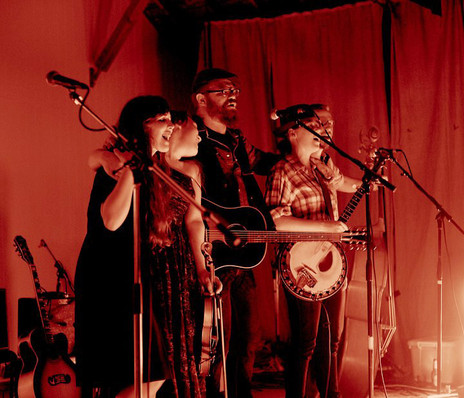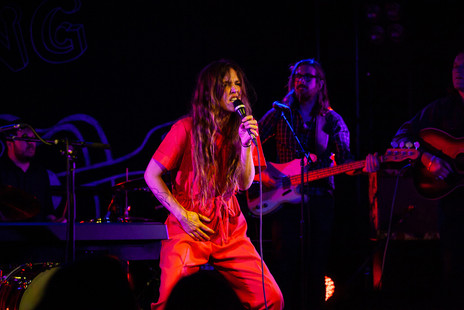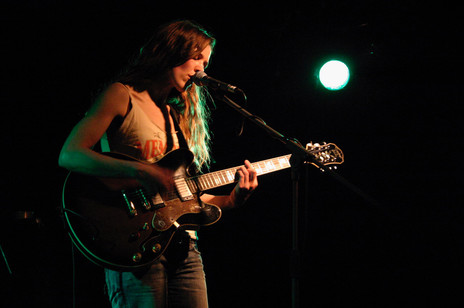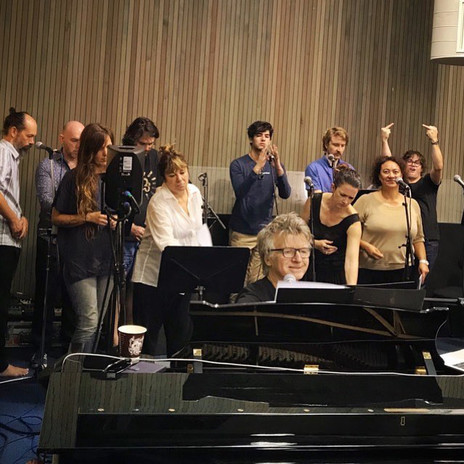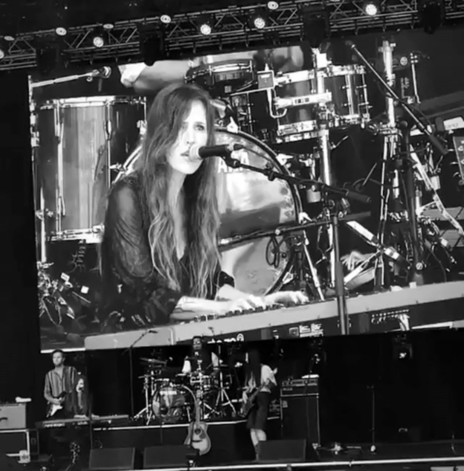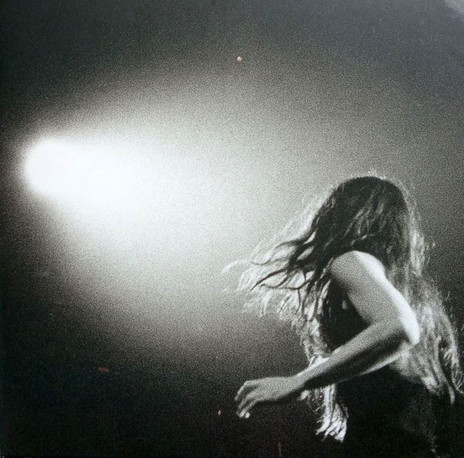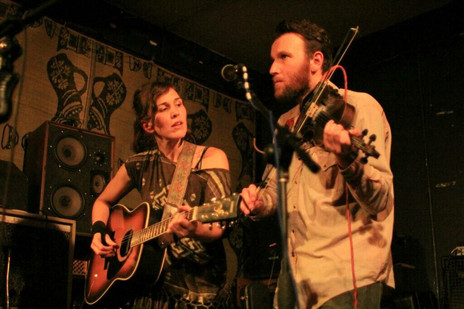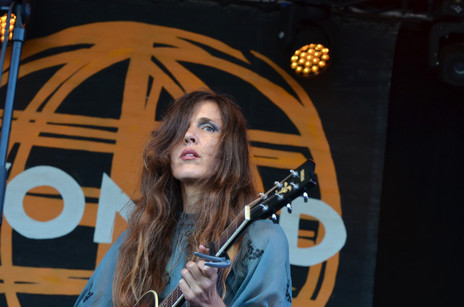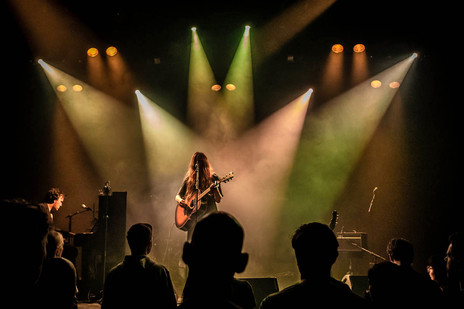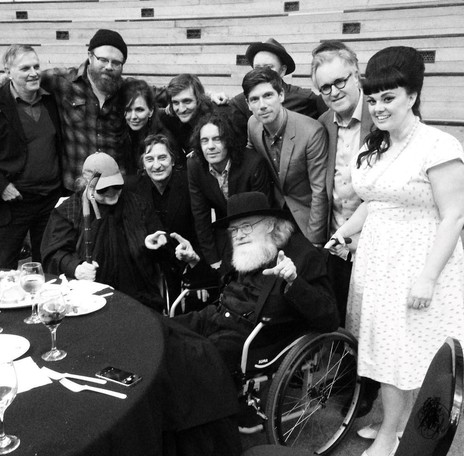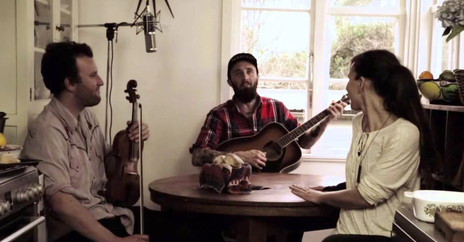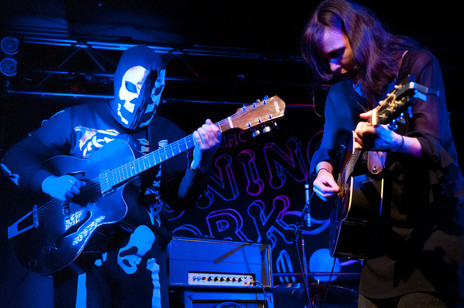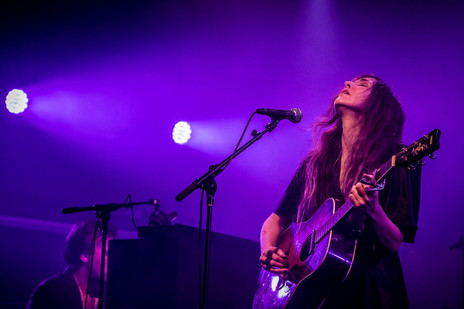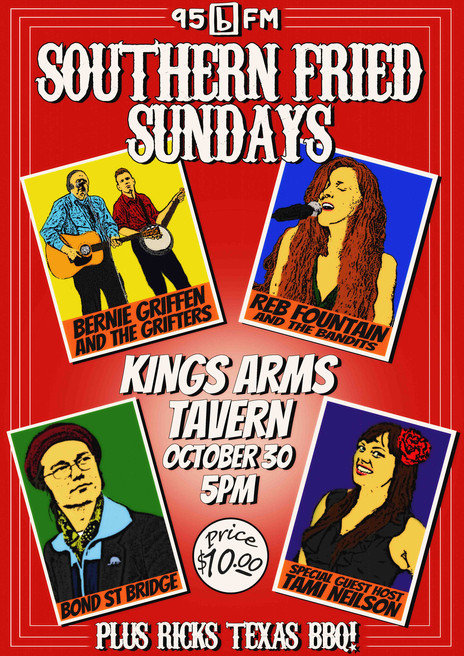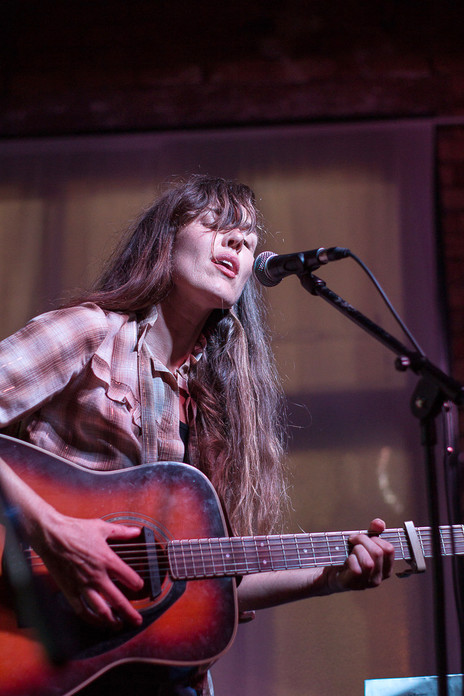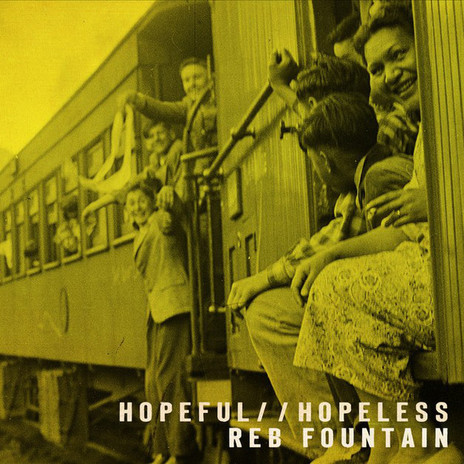In 1979 her father took a position at the University of Canterbury. Reb, with her parents and brother Joel, came to live in New Zealand. The family left San Francisco, a city at the height of progressive social change – leading the way in the LGBT movement and women’s liberation – and landed in predominately white conservative Christchurch. It was a stark shock.
The Fountains come from a long line of migrants whose tradition of connection through music helped them navigate the difficult transition.
“On my mum’s side they migrated from the Ukraine to Edmonton in Canada. My grandmother on my mum’s side took my mum and her brother and they walked across the border from Canada into the US to become citizens. Music was the way that people connected – playing the fiddle and the piano and the guitar and singing. We connected with these other migrant families. We’d have singalong sessions and Dad made up the songbook with all these different songs. We’d sit around in a big circle and play, and the kids would be there and we’d sing and, you know, super, super hippie-dippie.”
When Reb heard her mother singing harmonies, she was certain it was a skill she needed to learn herself. “I remember sitting there and listening to my mum harmonising and wanting to be able to do that, just finding a sense of meaning in there.”
But the social change was particularly hard on Reb’s mother. Reb uncovered an old recording that her mother had sent home to family, explaining the difficulties she faced. “She was talking about how struck she was with the subservient nature of the woman, particularly in the church, they’re still under their husbands and doing what they’re told.”
“The songwriting part was what I got stuck into it because it was a way to express myself.”
When Reb’s parents divorced, her emotional anchors were set adrift. She constantly battled with feelings of being socially different and shifted between schools a lot. By her mid-teens she was struggling with mental wellbeing and music became a lifeline.
“I had a guitar from a young age, but I sort of slowly plunked around. We used to go to Whitecliffs Music Festival – John Grenell’s festival. I was around 13 or 14 when I started really putting my deep melancholic poetry together with a couple of guitar chords. The songwriting part was what I got stuck into, because it was a way to express myself. At the time it was a much gentler way to express yourself than maybe cutting yourself or being bulimic. And it served a strong purpose in that way.”
However, the refuge she sought in music wasn’t enough to cure her of the episodes of self-harm and eating disorders. While attending a co-ed boarding school in Colorado she expressed her feelings of fragility. To her concerned teachers, they feared that she would take her own life and committed her to a suicide prevention institution.
Finally, relieved, she returned to New Zealand and finished school at Hagley High School. Her brother, Joel, had already begun his journey into music as a drummer, starting out in the school rock quest band with Julia Deans.
Reb’s first band, called Immaculate Sun, started performing around Christchurch. At this point Reb was deeply shy and nervous but she discovered that top-shelf spirits were an effective medicine for numbing the pre-show jitters.
The drinking became heavier and led to more concern from family friends – she was institutionalised again, this time in a rehab, St Mary’s Hospital in Hamner. Although the 12-step system used in therapy didn’t resonate with Reb, she walked away from the experience at St Mary’s with a different perspective on her choices.
“The good that I took out of it was that I realised all of these things were just a symptom, everything was just a symptom of what I felt that I was suffering. And I wanted to attend to that suffering in a new way.”
The end of her teens and early twenties were spent travelling with a boyfriend before winding up in California, where the pair got married. She suffered two grand mal seizures just months apart, after which she was unable to work or drive.
Music was again her salvation. Reb moved to Seattle where she studied jazz at Cornish College of the Arts, and her skills and confidence grew. The marriage did not endure; by 23 she was back in New Zealand and ready to make a solo record. Joined by a team of Christchurch musicians including her brother Joel, she started to record her first solo album.
Music was an antidote to the rigorous job of solo parenthood.
She was not long into a new relationship when she discovered she was pregnant with her son, Kalvin. Shortly after his birth, her daughter Lola was conceived. The relationship with the children’s father didn’t last and Reb was now a solo parent of two small children.
Music was an antidote to the rigorous job of solo parenthood and although her career ambitions had to be measured against the reality of being a parent, she persevered in making her first album. In January 2006 she released Like Water.
“All I wanted to do was make a record. There were so many things attached to making a record in my mind and I kind of grew up in that era where I very much had a rock’n’roll dream. You know, that was very illusory.”
Although the album received great reviews, as Graham Reid of Elsewhere observed, “it never quite got to the people who deserved to hear it.”
After the album’s release, Reb and her two young children moved to Auckland. Having moved between countries and schools so often in her life she was all too familiar with the unease of resettling in a new place, but in Auckland she was disheartened by music scene’s cliques and again she felt like she was on the periphery.
Then she found kindred collaborators in Dylan Storey and Sam Prebble and formed a strong creative bond. Both were multi-instrumentalists who shared their talents between many bands – notably Sam’s “psychedelic electroacoustic folk” band Bond St Bridge, and the Dylan Storey Band.
The pair joined Reb Fountain at her live shows as The Bandits and worked up the material that would eventually become her second album, Holster, Recorded at York Street Recording Studios then released in 2008 on her own label, Fountain Records, Holster was met with more critical success. Reb Fountain and the Bandits toured extensively, as well as joining Don McGlashan for his 2009 nationwide tour.
Over the next few years Reb worked on new material, from Vancouver, Canada, in her grandmother’s den, to the rehearsal studio in Auckland alongside Sam and Dylan. The songs became the album Little Arrows. Reb, Sam and Dylan went in to York St Studios with engineer Sam Gooding and Pluto’s rhythm section, bass player Mike Hall and drummer Mike Franklin-Browne.
Under horrendous circumstances everything came to a grinding halt in October 2014 with the sudden death of Sam Prebble. Reb was devastated. They’d been working together for over 10 years, and musicians who work together over long periods often develop an empathic familiarity similar to that shared by siblings.
“It took me many years to come out of that slump, you know, which is why Little Arrows was put on hold. There were some financial things on me, I just didn’t have the money to finish it. But also, I just couldn’t face it I couldn’t face music, I felt so broken and there were many other things in my life that just were compounding that.”
Adam McGrath of The Eastern, a champion of Reb’s work, was pivotal in helping bring Reb Fountain back to the stage. He asked her to tour with The Eastern.
“Well, I wanted to join the band, but I was terrified. Adam would say, ‘it’s like you’re a broken little bird’. He picked me up from the airport and I was in absolute tears. But I grew in confidence. I grew stronger. I remember that tour, walking into the Powerstation and just saying to him, ‘I can’t do this’ and him saying, ‘You fucking can, you’re gonna go up there and you’re gonna smash it.’ So, there was no choice for me to indulge in the insecurities and the self-doubts and I just had to do the work.”
With more and more confidence regained after working with The Eastern, Reb slowly returned to her unfinished album Little Arrows. And there was also a second project that had been left unfinished since the sad passing of Sam Prebble.
“A month before Sam died, we recorded the album Hopeful and Hopeless at the Wine Cellar. And the only reason that record happened was because Rohan Evans at the Wine Cellar was saying, ‘Reb, please let me record your songs, I really want to record them’. I mean I still had an unfinished record and I was so nervous about it. Sam came to my house and we talked about it and after a couple of practices, we went and made this record which was for all intents and purposes really loose. I was just kind of like, hands-off. But that record went on to be my most successful and really allowed me the process of releasing those after Sam died and having the time of being in despair and then going back and re-engaging and pushing through.”
Little Arrows and the five-song EP Hopeful and Hopeless were released one after the other during the month of June 2017 and were celebrated with high accolades. In 2018 Hopeful and Hopeless was awarded the Recorded Music NZ best country music artist Tui. The song ‘Hopeful and Hopeless’ won an APRA award for best country music song the same year.
From this point Reb had invitations to work with many of New Zealand’s finest musicians.
The success of those two albums, combined with her reignited passion for live performance, set Reb back on her feet. “I came out the other side of that and I felt like I had my wings back, you know, liberated to just be where I was and free of all the entanglements of my ego. And sure, it’s still there but I don’t let it rule my life anymore.”
From this point Reb had invitations to work with many of New Zealand’s finest musicians: an international tour supporting Finn Andrews and recording on his album, and Neil Finn invited Reb to appear on his album Out of Silence and join the band for the supporting tour. Reb has worked with a long list of great artists, including Tami Neilson, Julia Deans, Marlon Williams and The Warratahs.
Reb’s good friend Dave Khan had been collaborating with her over the years in various ensembles and in 2019 he agreed to produce her next album. They booked three weeks at Roundhead Studios where another old friend, Simon Gooding, had become the head engineer.
The resulting album is a stylistic change in direction for Reb as it moves away from folk and country. The decision to make the album self-titled signifies the potency of Reb’s artistry.
“I feel like what’s different for me about this record is that things have aligned. I have aligned with myself in a new way. That’s not to say I’m not still a bloody mess. But it just feels like I’m able to be more self-directive with it than I was 20 years ago.”
In January 2020 she signed a worldwide record deal with Flying Nun Records, whereas beforehand she has self-released her albums under Fountain Records. Despite the album’s release and tour coinciding with the March and April level-four lockdown during the COVID 19 crisis, the album received critical praise on both sides of the Tasman and from US-based tastemaker websites. The tour was postponed until after the lockdown, but meanwhile her audience could enjoy videos of songs from the album, which Reb made in collaboration with her daughter, Lola.
--
In late 2020 Reb Fountain and band toured New Zealand as the opening act for Crowded House’s 13-date To The Island tour, and in October 2020 they headlined before capacity crowds for a three-night run of shows at the Mercury Theatre in Auckland.
In 2021 Reb Fountain was awarded the Taite Music Prize for her self-titled 2020 album. She was shortlisted for the APRA Silver Scroll award for her song ‘Don’t You Know Who I Am’, and the album was nominated for five New Zealand Music Awards: Album of the Year, Best Alternative, Best Solo Artist, Best Album Artwork and Best Engineer.
During the 2020 Covid-19 lockdown Fountain and her band – Dave Khan (keyboards, guitar, co-producer), Karin Canzek (bass), Earl Robertson (drums) and co-producer Simon Gooding – chose to isolate together and retreated to Sublime Studio in the South Island where they recorded a new album, Iris. Iris was released in October 2021.
